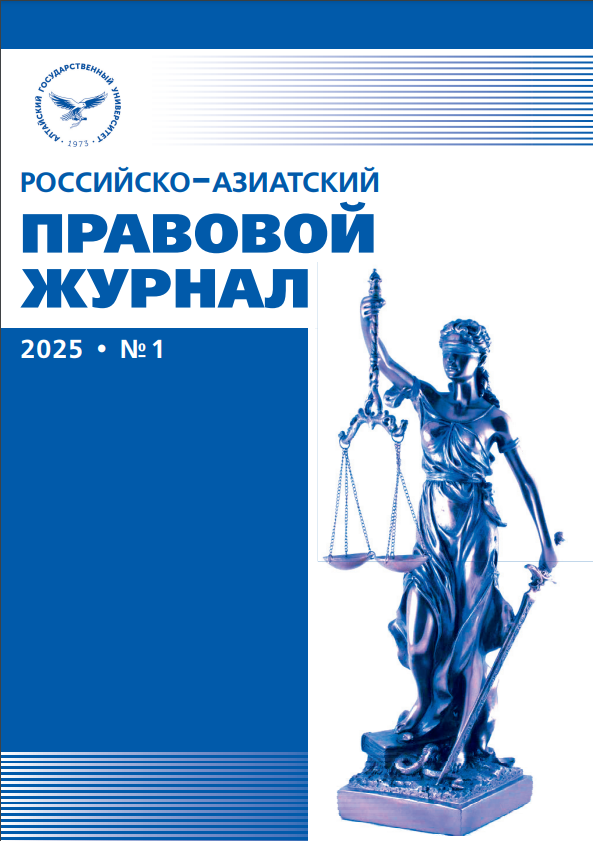LEGAL MEANS OF COUNTERFCTION FAKES (ON THE EXAMPLE OF THE REPUBLIC OF BELARUS)
УДК 340:004 ББК 67.408.135+67.3 (4Беи)
Abstract
The article analyzes the approaches of the Belarusian legislator in the field of combating thedissemination of inaccurate information through the media or using Internet resources. Attention is drawnto the fact that in modern conditions fake information is considered as a new phenomenon of the informationera. This phenomenon exists today both on the territory of the Russian Federation and on the territory ofthe Republic of Belarus. The need to determine the methods and ways of combating this phenomenon atthe state level is substantiated. In Belarus, counteraction to fakes is carried out in the following areas: legaleducation of citizens by conducting appropriate explanatory work among the population for «unfamiliar»calls or messages; the creation of a commission for the protection of state sovereignty, which will includerepresentatives of many ministries, as well as officials associated with the media, is being discussed;counter-propaganda, which includes disclosing false information, refuting it in official sources; increasedresponsibility for the spread of fakes (in 2021 appropriate changes were made to the criminal legislation).
Downloads
References
Верховный Суд Республики Беларусь. Обзоры судебной практики. URL: https://court.gov.by/ (дата обращения: 08.11.2024).
Воронова О. Е., Трушин А.С. Функции фейков в современных информационных войнах // История. РФ. URL: https://histrf.ru/magazine/article/funkcii-feykov-v-sovremennyh-informacionnyhvoynah (дата обращения: 08.11.2024).
«Чат с начальником»: новая схема аферистов набирает обороты. URL: https://mvd.gov.by/ru (дата обращения: 08.11.2024).
ТОП-5 киберобманов, которые подстерегают вас в интернете. URL: https://mvd.gov.by/ru (дата
обращения: 08.11.2024).
Copyright (c) 2025 Н.В. Мисаревич

This work is licensed under a Creative Commons Attribution 4.0 International License.
Russian-Asian Law Journal is a golden publisher, as we allow self-archiving, but most importantly we are fully transparent about your rights.
Authors may present and discuss their findings ahead of publication: at scientific conferences, on preprint servers, in public databases, and in blogs, wikis, tweets, and other informal communication channels.
Russian-Asian Law Journal allows authors to deposit manuscripts (currently under review or those for intended submission) in non-commercial, pre-print servers such as ArXiv.
Authors who publish with this journal agree to the following terms:
- Authors retain copyright and grant the journal right of first publication with the work simultaneously licensed under a Creative Commons Attribution License that allows others to share the work with an acknowledgement of the work's authorship and initial publication in this journal.
- Authors are able to enter into separate, additional contractual arrangements for the non-exclusive distribution of the journal's published version of the work (e.g., post it to an institutional repository or publish it in a book), with an acknowledgement of its initial publication in this journal.
- Authors are permitted and encouraged to post their work online (e.g., in institutional repositories or on their website) prior to and during the submission process, as it can lead to productive exchanges, as well as earlier and greater citation of published work (See The Effect of Open Access).








